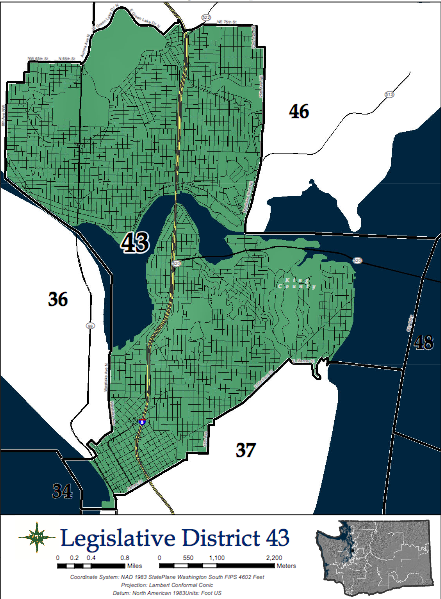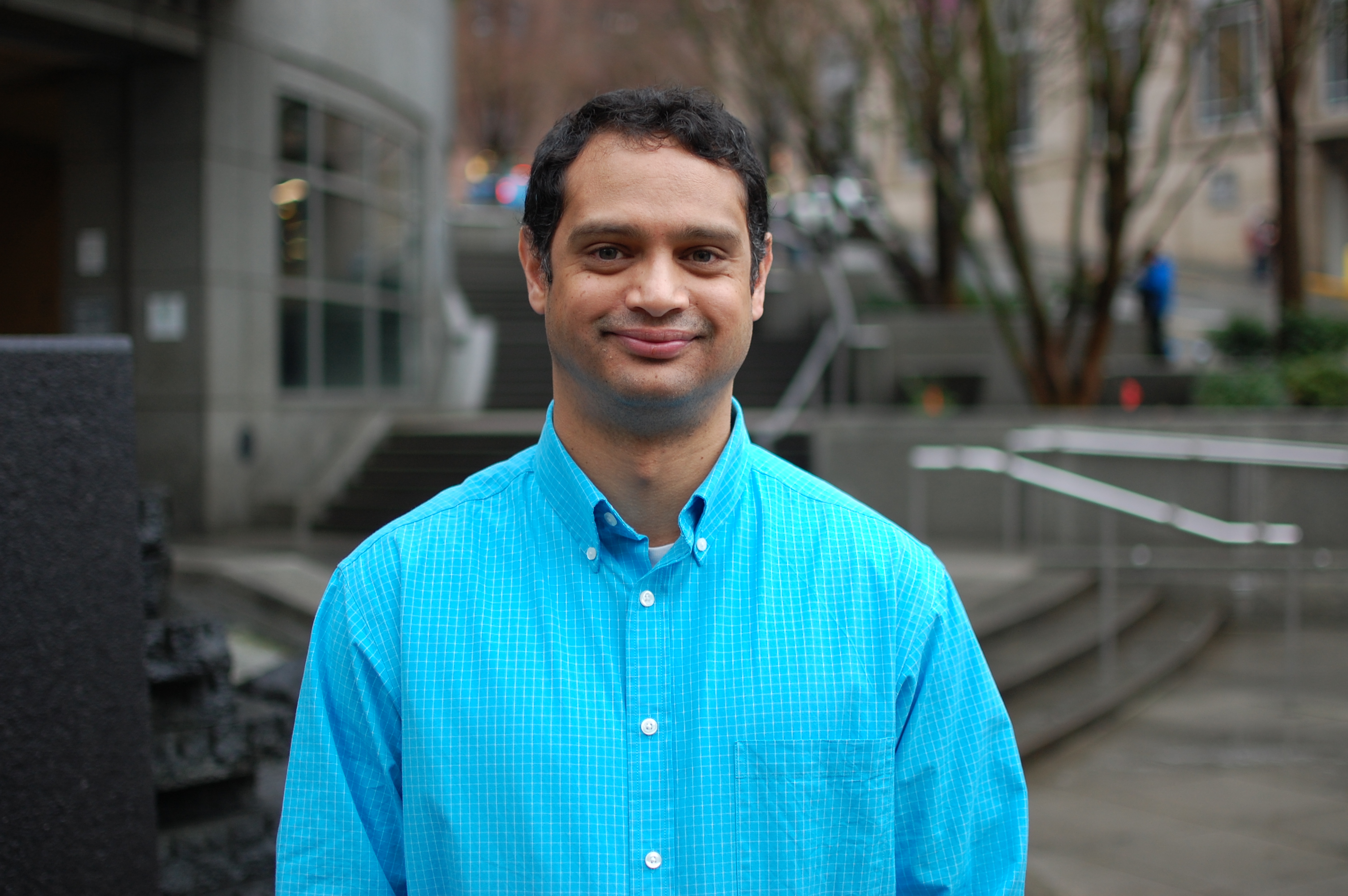Earlier this month, staff from The Urbanist met with candidates seeking election in the open seats of the 43rd Legislative District and 7th Congressional District for interviews. We also surveyed them on urban issues ranging from support of local initiatives like the Seattle Housing Levy and Sound Transit 3 to solutions on affordable housing and policies to address climate change.
Over the next week or so, we’ll be releasing our surveys from candidates in the 43rd Legislative District (Representative Position 1) followed by candidates in the 7th Congressional District. In early July, our Elections Board will release Primary endorsements of The Urbanist covering both candidates and local issues.
The following is our full survey from Sameer Ranade, candidate for the 43rd Legislative District.

Do you consider yourself an urbanist? Why/Why not?
Yes. When I moved back to Seattle in May 2014, I specifically chose to move to Capitol Hill because it was a vibrant, culturally rich urban environment. I like being around lots of people and feeling the electricity when you walk on the street. I know being an urbanist means that you’re more socially and environmentally conscious. You don’t need large material things or a big car. You can get around comfortably on foot, a bike, public transportation, or Car2Go. I love being able to step outside and find a grocery store, gym, nice coffee shop or eatery just a hop and skip away.
What is your strategy for making housing more affordable both for very low-income and middle-class workers?
My strategy is to build a strong progressive coalition that is effective in passing the necessary legislation to support this. That includes adequate funding for programs like the Housing Trust Fund. I would also consider tax breaks that encourage affordable housing. Furthermore, I believe building strong communities through infrastructure development and investment in social programs and education and getting wage equity will make housing more affordable by closing the income gap between low, middle, and high income earners.
What are your preferred policies for adapting to and mitigating climate change?
We must set a shrinking economy-wide carbon cap. We should cap pollution from those entities that emit over 25,000 metric tons of carbon annually, like power plants, natural gas generation centers, oil refineries, factories, and waste facilities. Emitters should pay a rising charge for their pollution. We must invest the revenues into programs like affordable housing, clean transit, renewable energy, energy efficiency, and green job training programs.
Furthermore, low-carbon performance standards should be created for power plants, transportation fuels, vehicles, appliances, buildings, etc. Trees should be planted at a large scale. Food should be more locally and organically grown. Such steps should mitigate climate change and save us from its worst effects. We must lead and Washington can catalyze the necessary change.
Regarding adaptation, we must diversify our energy portfolio so that we aren’t so hydro-dependent with water levels expected to be reduced in future years. We must save water through conservation: rain barrels, gray water recycling, and efficient water use in buildings. We must prepare for the sea level rise through infrastructure development, like seawalls and building elevation where necessary and practical. We must do more R&D to develop drought and heat resistant crops.
What are your preferred policies for ending homelessness?
I believe we need to change our deeply regressive tax system to make it progressive and to invest fully in basic education, higher education, and a range of vital social programs. Homelessness is a systemic problem that is a reflection of the worst of capitalism. The state should provide enough support so that no one goes without a warm bed at night. This means funding programs like HEN, TANF, and the Housing Trust Fund, and providing pathways for people get out of poverty through counseling, supportive services, and job training.
What state policies would you support to create more livable urban communities?
I would support policies that encourage tree planting, density, clean and efficient transit, and walkability. I would increase the number of buildings that have solar panels and green roofs through a mix of mandates and incentives. I would provide incentives to small businesses like coffee shops, farmers markets, and clothing stores like Cross Traders, that locate and hire in urban places. I would invest in social services, and things like libraries and arts centers to keep the community vibrant, welcoming, and safe for everyone.
What state policies would you support to create more equitable urban communities?
I would support investment in the housing trust fund and the creation of affordable energy efficient multi-family housing. I would steer more transportation dollars to encourage multi-modal transit investment that increases the accessibility of transit in all communities. I would make public education funded in a more equitable way by breaking the link between the wealth of the neighborhood a school is in and how well it is funded. I would support policies that encourage small businesses to locate in urban centers and address the problem of food deserts. I would support measures that reduce urban air pollution, like a low carbon fuel standard, the electrification of buses, cars and trucks and reduce the use of oil for heating homes. I would support incentives to encourage community gardens in neighborhoods and schools.
How can the state transportation budget better support diverse transportation choices?
By not building any more roads and highways and funding more efforts to enforce the state VMT requirements which will encourage smarter urban planning and result in communities that are friendlier to walking and biking. The state should also fund grants to replace retiring diesel buses with new electric ones and tax incentives for the purchase of electric cars. Tax breaks for electric cars should [not] come at the expense of money from the multi-modal account. It should come from the general fund.
Would you support a repeal of the state ban on rent control? Why/Why not?
Yes. Local jurisdictions have the best knowledge to determine whether instituting a form of rent control is necessary to maintain and/or create vibrant, equitable communities.
Do you support a mileage-based fee on vehicles to replace the gas tax?
Yes
Do you support mandatory inclusionary zoning?
Yes
Do you plan to support Sound Transit 3?
Yes
Do you support the Seattle Housing Levy?
Yes
Do you support the preservation tax exemption as applied to both non-profit and private landlords?
Yes
Editor’s Note: Article was updated on 6/29/2016 to correct a grammatical in the first response and a missing word in the seventh response

Elections Committee
The Urbanist was founded in 2014 to examine and influence urban policies. We believe cities provide unique opportunities for addressing many of the most challenging social, environmental, and economic problems. We serve as a resource for promoting urbanism, increasing political participation, and improving the places we live. The Elections Committee consists of community volunteers and staff members of The Urbanist and is a standing body representing the political values of our organization.


